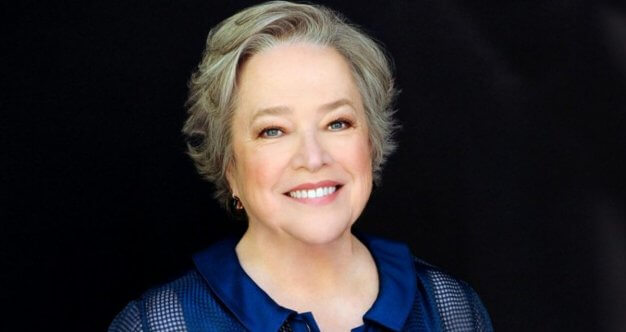Kathy Bates is what a lot of women aspire to be. Whether you’re an actress or not, she strong, she’s funny, and she’s working at age 70, and on top of it all, a movie she starred in thirty years ago is receiving an homage as part of Hulu’s horror show “Castle Rock.”
In 1990, Bates starred in “Misery,” based on the 1987 Stephen King novel by the same name, about the relationship between a popular writer named Paul Sheldon and a psychotic fan named Annie Wilkes, Bates’ character.
Read MoreMisery arrives October 23, only on @hulu. #CastleRock pic.twitter.com/p2zmqqUrc4
Castle Rock (@castlerockhulu) August 29, 2019
Bates’ Cancer Journey
In 2003, Bates, then 55, was diagnosed with stage 1 ovarian cancer and immediately had surgery, followed by nine months of chemotherapy to treat it, but didn't reveal her illness to the public.
“I didn't tell anybody," she told PEOPLE in 2018. "I continued to work right after the operation, doing Little Black Book with Brittany Murphy. My agent at the time was very old-school and didn't want me to be the poster child for ovarian cancer. I didn't want anyone to know, but it really took a lot out of me.”

In 2012, Bates experienced extreme exhaustion, and after an MRI, was diagnosed with cancer for the second time, this time in her breast. Because of her family history with the illness, she decided to have a mastectomy.
Earlier this year, Bates talked about the importance of cherishing each day after cancer, “If you can hold on to that aspect of being a cancer survivor, it's the best thing you can do for yourself,” Bates said last week to Closer Weekly at an event in New York City. “I'm grateful it's given me a chance to use my celebrity to help people.”
She also said that the experience made her appreciate her loved ones even more than she already did. During difficult times "you value your friends," the actress said.
Kathy Bates, Lymphedema, and Cancer Advocacy
She also used her experience to become an advocate for lymphedema awareness. Lymphedema, or chronic swelling, can occur after surgery and radiation treatment for breast cancer. It occurs when lymph vessels that channel fluid throughout the body are impaired and cannot dispose of fluid effectively. This causes fluid build-up and swelling, usually in the arm and hand.

It's fairly common in women who undergo breast cancer treatment, but doesn't get a whole lot of attention. Bates wants to change that. "It affects more people than ALS, MS, AIDS and Parkinson's combined," Bates told People. "Ten million Americans. But people just don't know about it."
When Bates was dealing with the painful symptoms of lymphedema, she worked with the Lymphatic Education & Research Network (LE&RN) to find a doctor who really understood the condition. Bates said a lot of doctors overlook the symptoms of lymphedema, assuming that the swelling is due to patients being overweight.
There are several ways to treat lymphedema, including compression garments, exercises, and even surgeries in some cases. The actress recently lost 60 pounds by adjusting how she approaches eating, and said that the weight loss has helped a lot with her lymphedema though she does still wear compression garments as well.
She also realizes that she's lucky she had access to the resources she did when she began to experience the symptoms of lymphedema. That's why she became a national spokesperson for LE&RN. "I've been asked to lend my name to a cause [before] and I've made it my policy not to do that," Bates said about her decision to speak up about her experience with cancer and lymphedema. "But this is the first one I've felt strongly about."
Information on deciding between lumpectomy or mastectomy
Choosing what kind of surgery to have is a very personal choice. "As a breast surgeon, my job is (to help patients) understand that their long-term survival with mastectomy is equivalent to that with lumpectomy and radiation," says Dr. Sarah Cate, a breast surgeon at Mount Sinai Health System.
Dr. Dr. Sarah Cate, a breast surgeon at Mount Sinai Health System on deciding between lumpectomy and mastectomy
Often women will request to have both breasts removed, believing it's the best way to prevent the cancer from recurring. This is not always the case. The size of the tumor, its genetic markers, and the patient's family history are all factors to consider when choosing which surgery to undergo.
Learn more about SurvivorNet's rigorous medical review process.


